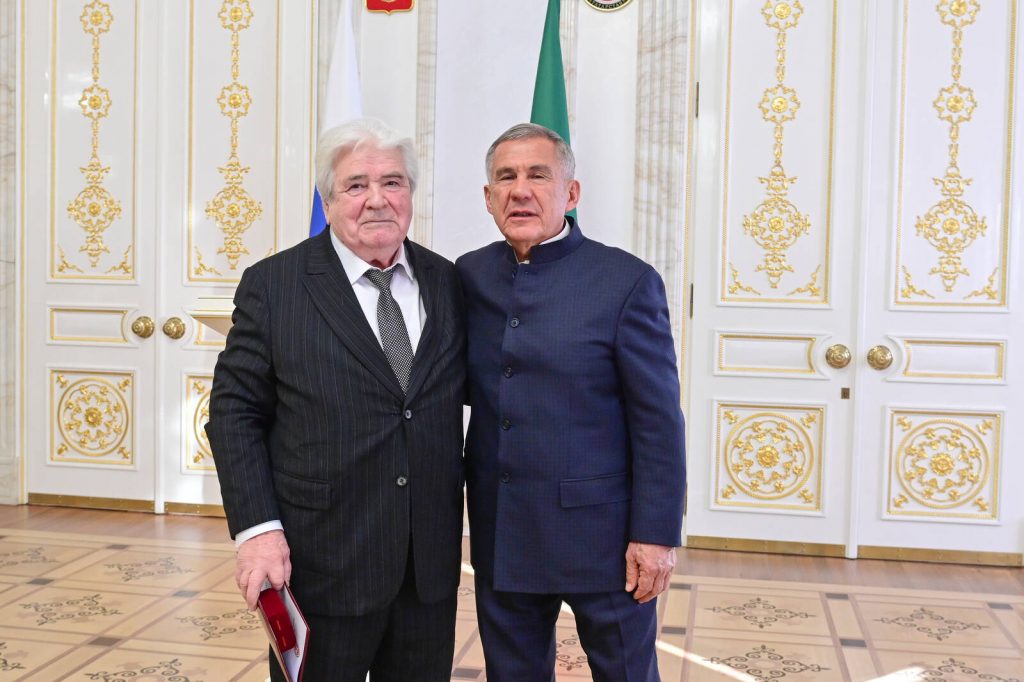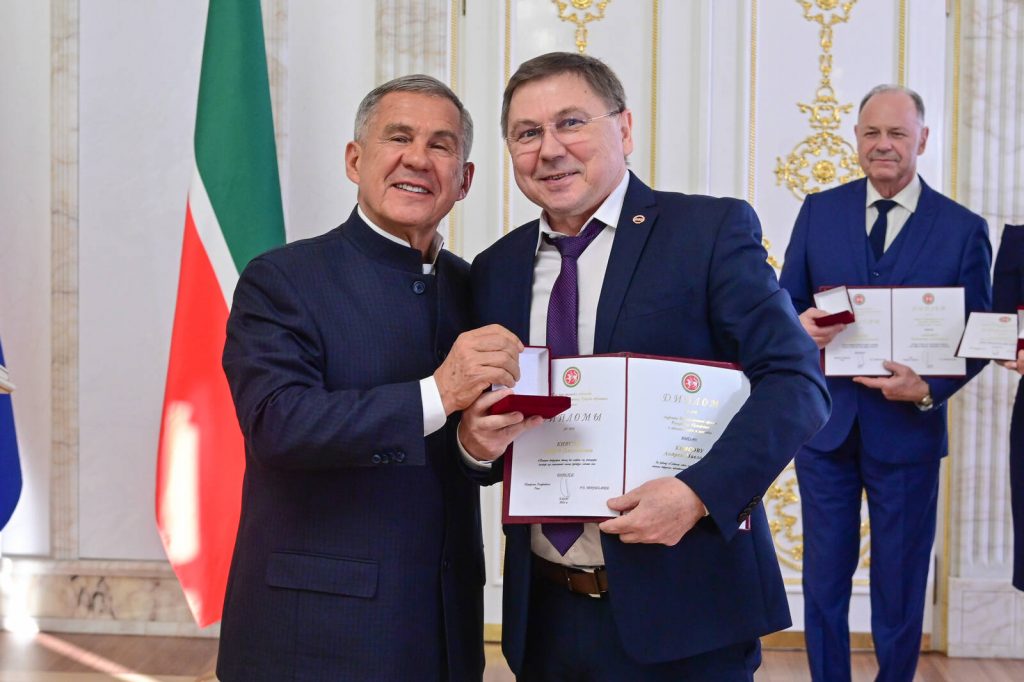Two KFU scientists receive 2024 Tatarstan State Award in Science and Technology


A ceremony at Kazan Kremlin was chaired by Rais (Head) of the Republic of Tatarstan Rustam Minnikhanov.
The KFU laureates were:
Marsel Bakirov, Lead Research Associate of the Center for the Studies of Leo Tolstoy’s Legacy, Institute of Philology and Intercultural Communication – for his publication cycle Experience of complex studies of ethnogenesis and ethno-cultural heritage of the Turkic-Tatar world;
Andrey Kiyasov, Director of the Institute of Fundamental Medicine and Biology (as part of a research team) – for the Creation of a new pathogenetic direction for treatment of viral diseases and prevention of their complications project.
Bakirov’s works include four monographs and The Tatar Folklore university textbook, where he elaborates on his view of the ethnic genesis of Turkic peoples through folklore, poetry, faith, and spiritual culture as a whole.
Dr Kiyasov noted that his and his colleagues’ work on endotoxins was initiated by Mikhail Yakovlev, a Kazanian scientist currently working in Moscow, Head of the Laboratory of Systemic Endotoxinemia and Shock of the Research Institute of General Pathology and Pathophysiology. He put forth a hypothesis that endotoxins produced by dying symbiotic bacteria in a human body influence many biological processes, including those taking place in viral infections.
The awarded researchers found that endotoxins can be strong stimulants and play a positive role in a human organism in moderate amounts by helping it fight diseases and aiding in regeneration. However, this only happens when there is no endotoxinemia, i. e. a sizable quantity of endotoxins in a body. The obtained data may be used for further research on target pathogenetic medications.

